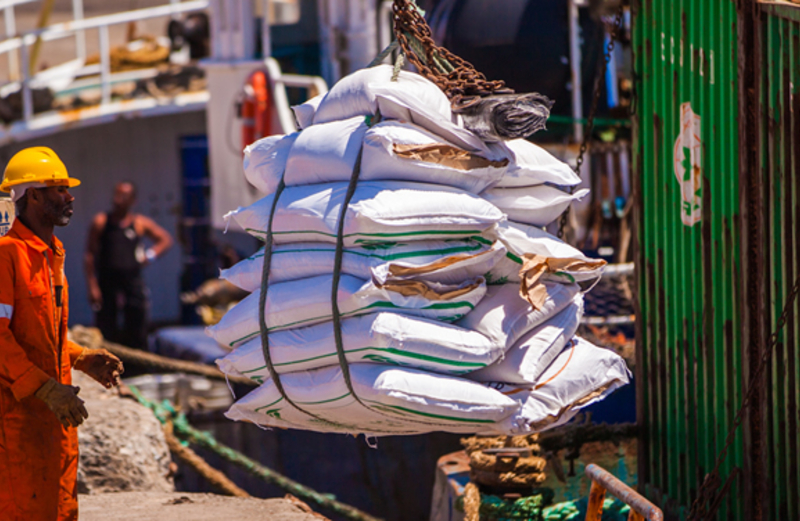The Africa Continental Free Trade Agreement at core of deliberations in Nairobi

“Enhancing Trade and Market Access for Accelerated Agriculture Transformation”
Nairobi, Kenya, June 12, 2019–“It is difficult to form a compelling vision of prosperity without a role for trade. But for the market to kick off effectively infrastructure that intensifies connectivity and access is necessary”said Dr William Ruto, Deputy President of the Republic of Kenya.
Dr Ruto was addressing Parliamentarians, Government of Kenya representatives, the African Union institutions and the representatives of the key CAADP constituencies. during the opening ceremony of the 15th CAADP Partnership Platform Meeting which started on the 11th June 2019 in Nairobi, Kenya.

He continued to highlight the importance of free trade in increasing land availability for cultivation. “Free Trade ensures that every producer is connected to the market through efficient systems and evens out pricing imbalances which increases profit margins. Free trade creates demand for efficient technology, inspiring innovation. Under AfCFTA more land will be available for cultivation with better technology, more and better food will be on every table” he said
The CAADP Partnership Platform PP Meeting took place at the Safari Park Hotel, Nairobi, Kenya to review progress and share experience of CAADP implementation since the last CAADP PP in Libreville, Gabon in April 2018.
Hosted by the African Union Commission (AUC) and the African Union Development Agency-NEPAD, the theme of this year’s CAADP PP, namely “Enhancing Trade and Market Access for Accelerated Agriculture Transformation”stems from the recognition of the role that intra- African trade in agriculture can (and should) play in driving economic growth; but also, the significant challenges involved.
The CAADP PP remains a continental agricultural platform for policy dialogue, lessons sharing and accountability among the CAADP Stakeholders to advance the CAADP Agenda. The meeting built on the lessons learned and challenges from previous editions of the PP and further streamline the anchorage of this multi-stakeholder mobilization and engagement platform while also reinforcing the partnership among constituents for accelerated CAADP implementation.
The meeting aimed to review progress against Malabo Goals and encourage policy dialogue and actions (either collectively or individually by organizations/countries) and stimulate peer to peer learning to accelerate progress.
"We all need to work hand in hand to agree on the roadmap and key policy actions that will position the agriculture sector to take full advantage of the single African market of 1.3 billion people and a cumulative GDP over $3.4 trillion. We can make agriculture transformation happen by 2025. As we continue to celebrate the recently launched Africa Continental Free Trade Area (AfCFTA), let us not only debate but take action on how to attract funding from public and private sectors to enhance intra-African trade and catalyze agriculture transformation in Africa,” said the African Union (AU) Commissioner for Rural Economy and Agriculture, H.E Josepha Sacko at the opening ceremony.
In 2015, African countries spent about US$63 billion on food imports, largely from outside the continent. The modelling work by the Economic Commission for Africa (ECA) projects that intra-African trade in agricultural products will be between 20% and 30% higher in 2040 with the AfCFTA in place which would then generate state revenue, increase farmer income and expand both farmer and country capacity to invest in modernizing the sector through processing and mechanization.

The AUDA-NEPAD as co-organiser of the Partnership Platform and implementor of CAADP projects at Regional and National level, was represented by a delegation led by Dr Hamady Diop, AUDA-NEPAD Head of Programme: Natural Resource Governance, Food Security and Nutrition , who spoke on behalf of the AUDA-NEPAD CEO, Dr Ibrahim Mayaki.
He spoke on the challenges in achieving enhanced intra-African trade, amongst these he highlighted the need for countries to showcase improved leadership when engaging in partnerships with development partners, silo mentality in the implementation of agriculture programmes at Regional and Country level and the continued lack of similar vision between state and private sector in the agricultural transformation agenda.
“Africa has faced a food and agricultural import bill averaging US$ 35 billion a year and rising faster than intra- African trade. Notable among these fast-growing imports are processed products and value-added food, this points to the need for accelerating agro-processing industry development in a value-chain approach to agricultural transformation and, therefore, for stronger linkages between policies and strategies for agricultural, trade and industrial development.”he said.
The Economic African Communities (EAC) shared best practises in achieving a united approach to free trade and development partners underscored their continued commitment to working jointly with African entities such as the AUC and AUDA-NEPAD in implementing ‘real’ transformation in the Agriculture space.
The meeting continues on the 13thJune with the High-Level Ministerial Session on Africa Agriculture Transformation.
